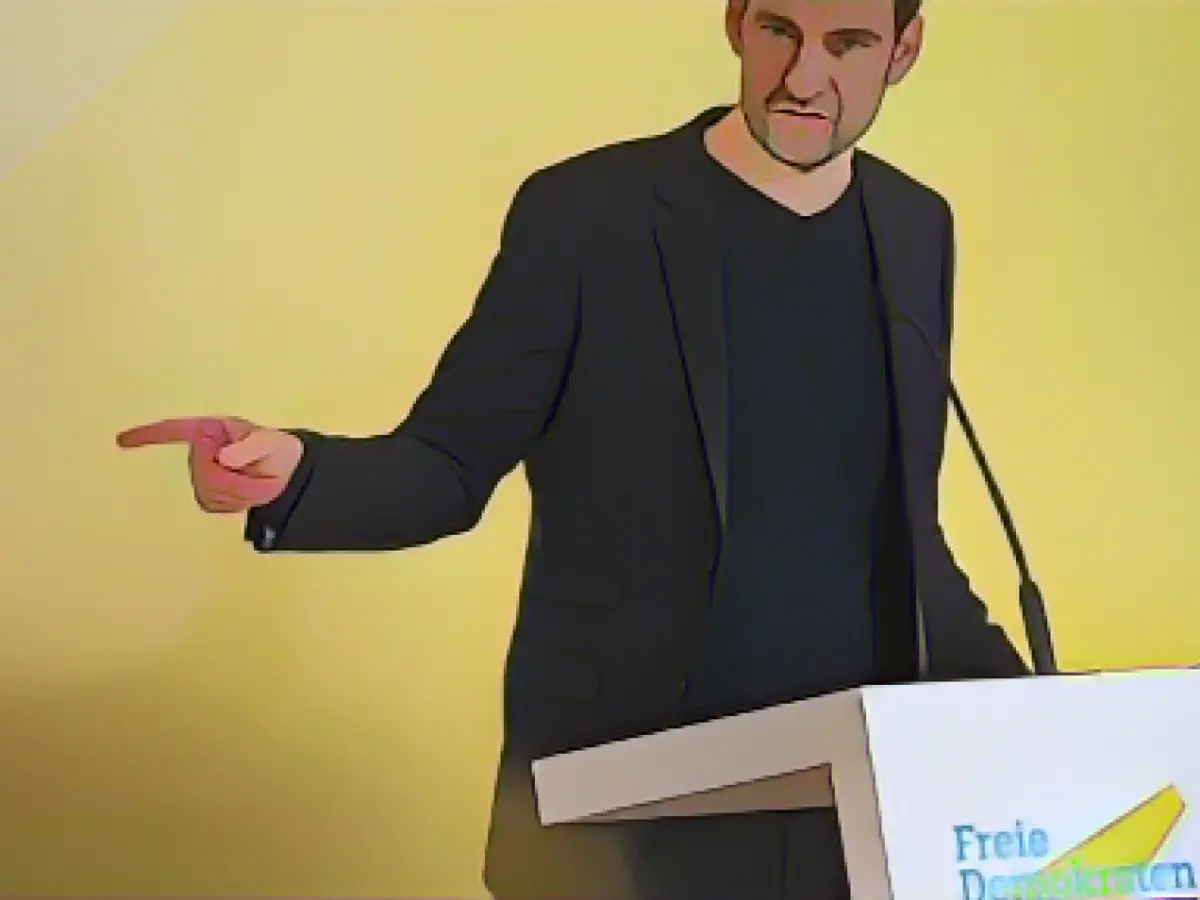In the midst of the financial crisis, SPD leader Saskia Esken is hopeful that the German federal budget for 2024 will be finalized ahead of Christmas, steering clear of cuts to social advantages and climate initiatives. Esken expressed her strong conviction to the Düsseldorfer "Rheinische Post" newspaper, emphasizing the importance of completing the budget this year. She added, "The German people, who bear the brunt of the crises, deserve a peaceful Christmas and clarity about the country's financial future."
Esken stressed that the success of finalizing the 2024 budget before Christmas hinges on all coalition partners – SPD, Greens, and FDP – recognizing the reality and collaborating cohesively. She warned against making sacrifices on the backs of vulnerable groups such as pensioners, children, and the unemployed. Meanwhile, she pledged unwavering commitment to achieving a climate-neutral economy, emphasizing "We will continue our path to climate neutrality and will not leave people and the economy to fend for themselves."
FDP deputy chairman Johannes Vogel disagreed with tax increases during the budget crisis, stating such a move would be harmful for Germany's competitiveness as a high-tax nation. Instead, he advocated for additional relief for middle-class families and businesses, urging the government to prioritize their needs.
Despite these opposing stances, the three political parties in the traffic light coalition are grappling with determining the federal government's spending capacity due to budget gaps and Modernization and Climate Protection funds arising from the Karlsruhe ruling. The ruling introduced gaps in the 2024 budget and funds related to modernizing the economy and climate protection.
Vogel criticized calls for suspending the debt brake for a second consecutive year due to the crisis, arguing against a relaxation of financial discipline and increased spending. From the FDP's perspective, the debt brake has just been strengthened by the Karlsruhe ruling and weakening it would be both legally and politically unfeasible. By focusing on prioritizing wisely and making effective policy decisions with limited resources, Vogel emphasized the importance of financial responsibility.
Svenja Schulze, the SPD's federal development minister, encouraged against making any cuts to development aid as an industrialized powerhouse like Germany heavily relies on international cooperation. She warned that reducing assistance would be ill-advised and likely have further consequences on Germany. Meanwhile, Finance Minister Christian Lindner (FDP) similarly criticized calls for cutting international financial aid, citing that Germany exceeds the global average in development assistance.
Controversy surrounding the citizen's income and potential savings has also arisen within the coalition. FDP leader Lindner highlighted the improved inflation rate, indicating a diminished need for such increases. However, the CDU/CSU's social wing resists calls to halt the inflation-adjusted increases, leading to ongoing discussions within the coalition.
Sources: Stern
Enrichment Data:
- The SPD, Greens, and FDP have their distinct stances on addressing the budget crisis and spending. The SPD and Greens advocate for using loans to fill the budget gap, while the FDP unambiguously rejects taking on additional debt.
- The FDP insists on adhering strictly to the debt brake, which sets a structural budget deficit cap of 0.35% of GDP. The SPD and Greens lean towards relaxation of the debt brake to increase funds for spending in environment, education, and infrastructure.
- CDU/CSU holds a nuanced view on the debt brake, open to negotiations for relaxation but focusing on tightening fiscal discipline through cutting government consumption and subsidies.
- The AfD, a right-wing party, advocates for sustainability in government spending and a tighter immigration stance. It has not publicly revealed its stance on the budget crisis or the debt brake.








